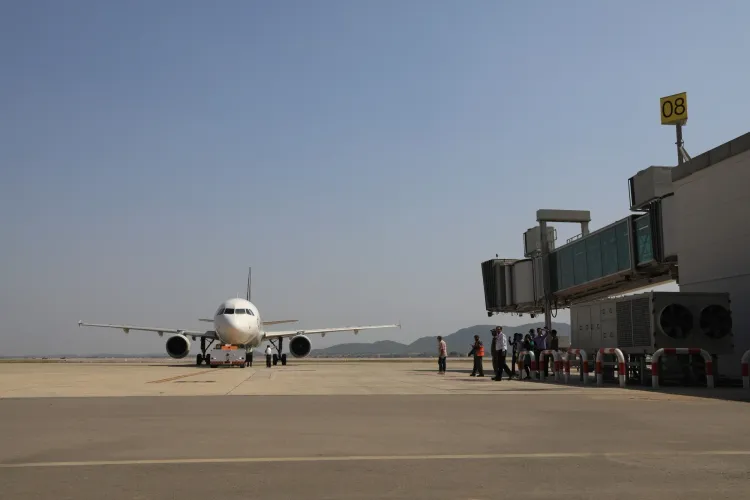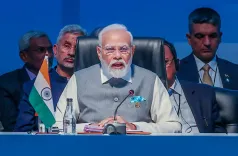Is PIA’s Sharp Decline Indicative of Pakistan’s Diminishing Ability to Manage Public Enterprises?

Synopsis
Key Takeaways
- PIA's financial losses exceed $2.5 billion.
- Old fleet and operational issues threaten safety.
- Engineers are protesting against pay inequities.
- PIA has not operated any international flights since November 3.
- The situation reflects broader issues in Pakistan's aviation sector.
New Delhi, Nov 15 (NationPress) The significant downturn of Pakistan International Airlines (PIA) represents more than just an airline's collapse; it illustrates Pakistan's diminishing ability to effectively manage its public enterprises, as highlighted in a recent report. Flight delays, unpaid wages, and safety-related protests have become commonplace, indicating a flag carrier that has not only lost altitude but also its sense of direction, according to the report published in Asian News Post.
The airline has been facing substantial financial losses for years, with estimates exceeding $2.5 billion.
“Its fleet is outdated, operations are unpredictable, and its reputation is in tatters,” the report indicates.
In the latest upheaval, the Society of Aircraft Engineers of Pakistan (SAEP) initiated a protest over salary inequities and rising safety issues, culminating in a full-blown crisis that has grounded flights across the country.
“Passengers—many headed for Saudi Arabia and other locations—were left stranded for hours as engineers declined to approve airworthiness certificates,” the report stated.
As per SAEP, “while pilots have seen salary adjustments, engineers argue that their pay has stagnated for almost a decade.”
Engineers also claim they have been repeatedly instructed to reuse old or worn-out aircraft components, an order they say directly jeopardizes passenger safety, as claimed in the report.
The report further emphasized that “the ongoing conflict with engineers highlights the systemic decay. Engineers are crucial for aviation safety—no aircraft can take off without their approval. Their refusal to certify planes has nearly halted operations.”
Additionally, since November 3, not a single PIA international flight has departed, starkly illustrating the fragility of the airline’s infrastructure.
The report asserts that PIA's predicament is reflective of a broader aviation crisis in Pakistan. The Civil Aviation Authority (CAA), which regulates the sector, faces criticism for regulatory shortcomings and corruption.
“Following the 2020 crash of PIA Flight PK8303, global regulators found that nearly one-third of Pakistani pilots possessed questionable or fraudulent licenses,” it noted.









